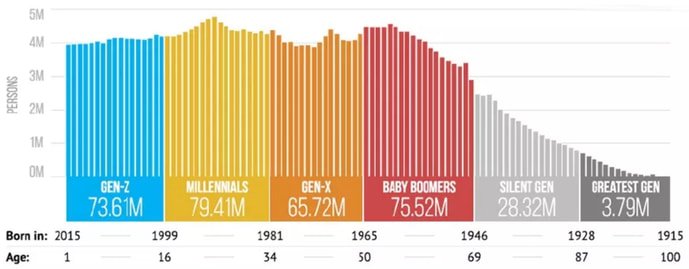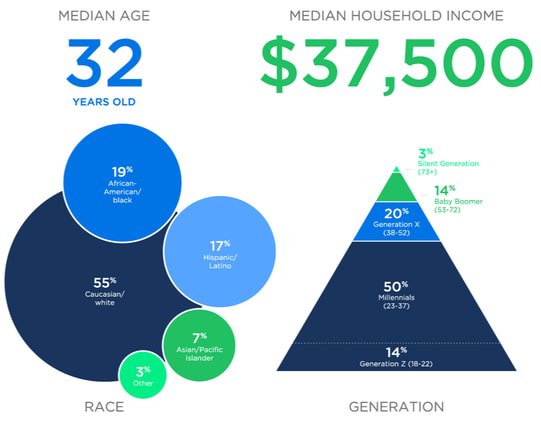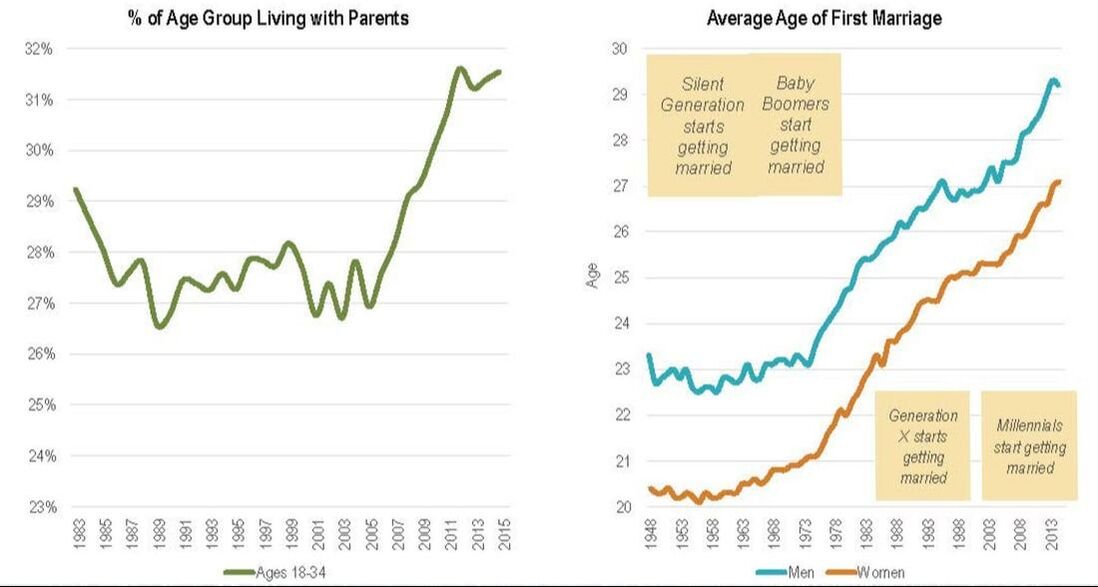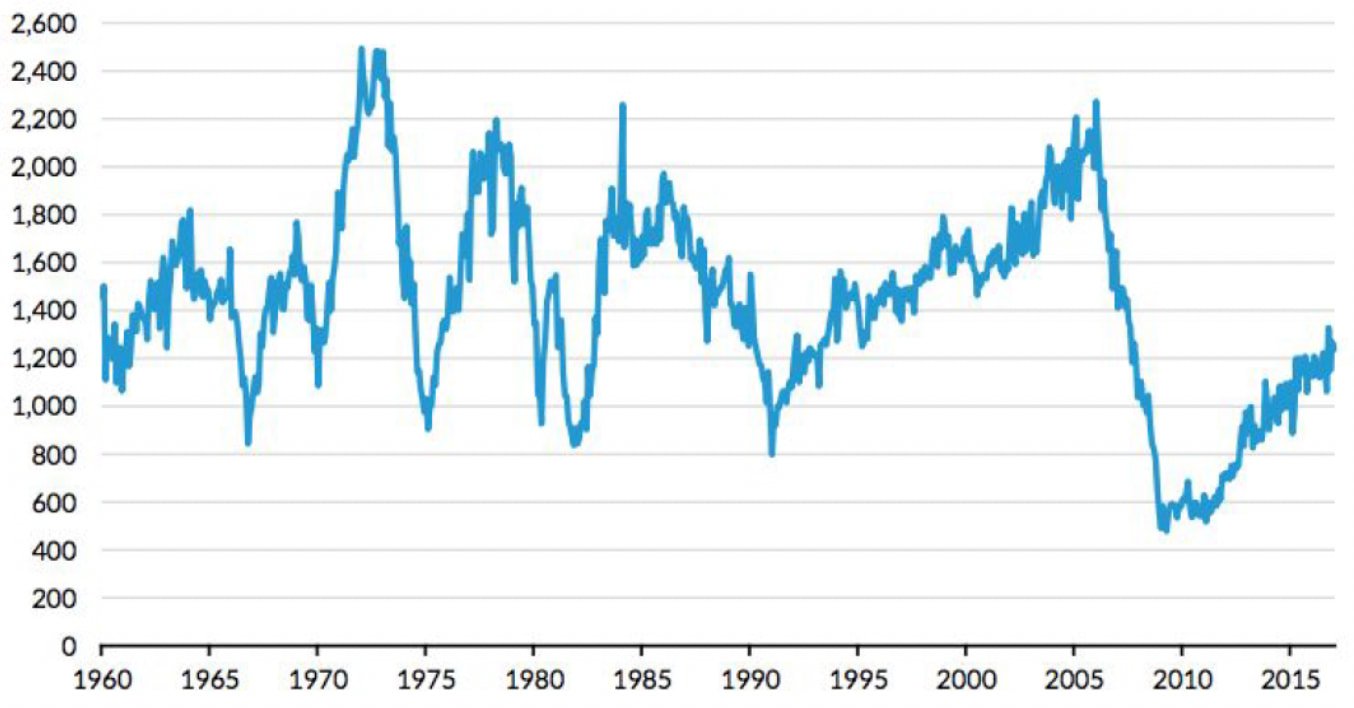Millennial Migration: Housing for the Renter Generation
Millennials (born 1981 to 1997) are renting far more than prior generations. In this article, we explore why and understand if it is by necessity or by choice. Millennials are the largest generation in U.S. history, at approximately 79 million strong — surpassing Baby Boomers by about 4 million. Millennials (also known as Gen-Y) comprise 50% of all renters in the U.S., and are 8% less likely to own homes (when aged between 25 and 34yrs old) when compared to Gen-X and Baby Boomers at a similar age. The median age of today's renter is 32 with a median household income of $37,500, and most (60%) make less than $50,000. By comparison, 57 is the median age of today’s homeowner who have a median household income of $62,500.
Source: U.S. Census Bureau
The Millennial generation are the highest educated generation on average, however, the cost of student debt has saddled them with the highest age adjusted debt-to-income ratios making saving for a down-payment to purchase a home more complex than for prior generations. Approximately 70% of recent college graduates finish school with an average of $29,800 in debt to repay, plus interest.
Millennials have a reduced marriage rate (having fallen from 52.3% in 1990 to 38.5% in 2015 among a young adult cohort), are more likely to delay marriage and childbearing, and are living with parents for longer; all life changes that delay household formation. The residual effects of the Great Recession continue to impair this generation's ability to buy homes, in part because heightened bank regulation has increased required credit scores needed to secure mortgages.
Home Renters by Generation
Source: Zillow Group Consumer Housing Trends Report
Although they entered the workforce just prior, or during the Great Recession, surveys regularly show that Millennials possess the aspiration to own a home and hold a sentiment that home ownership remains a vital path to wealth creation in the U.S., though they are keenly aware of the ever increasing barriers to getting onto the housing ladder. Despite being the highest renter group, an overwhelming majority (69%) of Millennials believe owning a home is an essential part of the American Dream.
Living with Parents and Delaying Marriage
Source: National Association of Home Builders
During the housing crisis, homeowners who lost their residences entered the rental market in droves. However, despite the spike in demand for rentals, there was not a corresponding increase in the supply of rental properties. This lack of rental supply combined with wage stagnation (when inflation adjusted) has led to rent growth substantially outstripping salary growth.
Given this, rent has become a larger cost for the average American, increasing the amount of "rent-burdened" households (i.e. more than 30% of gross household income goes to rent). In the 1990's and early 2000's the proportion of young renters (aged 18-34) that were deemed "rent-burdened" consistently hovered at approximately 38% of this cohort. Today rent-burdened renters represent 50% of young renters.
Barriers to Homeownership
Source: Urban Institute
Currently, the supply of newly constructed single family homes on the market is not keeping pace with the demand for such homes. This is particularly true at the lower end of the market in the “starter home” sector. The fact that housing construction has not kept up with demand, that there is limited availability of affordable rental properties currently on the market, and the shortage of available homes for sale at the lower end of the price range, has heightened concerns about the lack of supply of viable housing alternatives for the Millennial generation.
Newly Built, Privately Owned Construction (,000)
Source: Urban Institute
At Ballast Rock Capital we believe that Millennials have migrated towards renting and away from home ownership primarily out of necessity rather than by choice. This trend continues to support the ever increasing need for safe and affordable rental homes.
Please feel free to connect to learn more about how we work with experienced real estate professionals to offer investors the opportunity to invest in income producing assets with a positive social impact.






